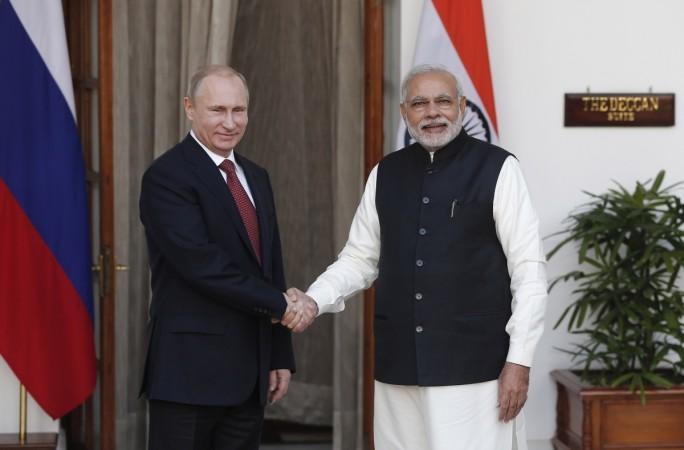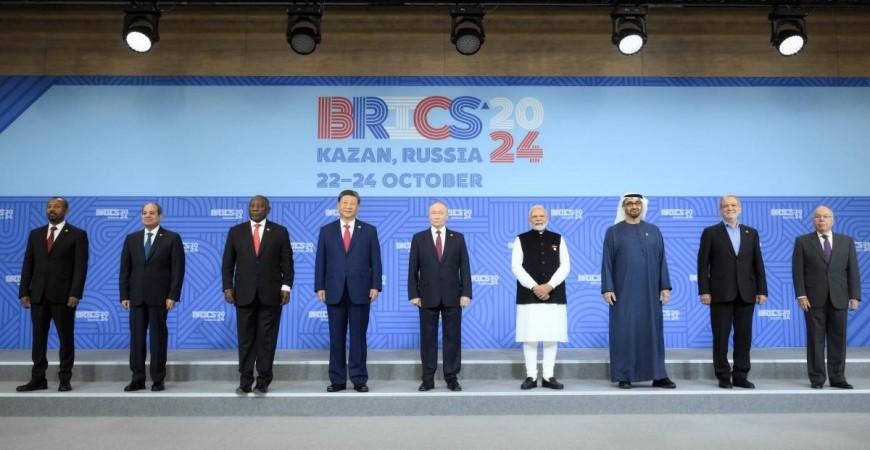
Indian Prime Minister Narendra Modi recently engaged in a significant diplomatic meeting with Russian President Vladimir Putin. This interaction took place on the sidelines of the 16th BRICS Summit held in Kazan, Russia, marking their second meeting in 2024. Their previous meeting was during the 22nd Annual Summit in Moscow in July.
The leaders undertook a comprehensive review of bilateral cooperation across various domains, including political, economic, defense, energy, and people-to-people ties. The ongoing conflict in Ukraine was also a topic of discussion, with Prime Minister Modi reiterating India's readiness to provide any possible assistance to resolve the issue. This stance underscores India's commitment to global peace and stability, reflecting its diplomatic approach of dialogue and diplomacy in conflict resolution.
The BRICS Summit, under Russia's chairmanship, was described as very productive by Prime Minister Modi. He appreciated Russia's efforts to strengthen multilateralism, advance sustainable development, and push for global governance reform. This sentiment was echoed in his interactions with other world leaders present at the summit, including Chinese President Xi Jinping, UAE President Sheikh Mohamed bin Zayed Al Nahyan, and Egyptian President Abdel Fattah El-Sisi. These interactions indicate India's focus on enhancing diplomatic relations and cooperation with key global players.

The leaders also welcomed the forthcoming meeting of the India-Russia Inter-Governmental Commission on Trade, Economic, and Cultural matters, scheduled to be held in New Delhi in November 2024. This meeting is expected to further strengthen the Special and Privileged Strategic Partnership between the two countries, which continues to register significant growth despite geopolitical uncertainties. In a significant move, Prime Minister Modi invited President Putin to visit India for the 23rd Annual Summit in 2025. This invitation underscores the importance India attaches to its relationship with Russia, a time-tested ally with whom it shares deep-rooted strategic and defense ties.
During his visit to Russia, Prime Minister Modi also announced the opening of a new Indian consulate in Kazan. This move is expected to enhance cultural, economic, and diplomatic connections between the two countries, fostering closer cooperation and understanding. It also signifies India's commitment to deepen its engagement with Russia beyond traditional centers. The BRICS Summit also saw discussions on the expansion of the bloc, which currently comprises Brazil, Russia, India, China, and South Africa. The inclusion of five additional members - Egypt, Ethiopia, Iran, Saudi Arabia, and the UAE - was noted as a significant development, reflecting the growing influence of the group in global affairs.
The meeting between Prime Minister Modi and President Putin also touched upon the issue of Indian nationals in the Russian army. The leaders discussed the early discharge of the remaining Indian nationals, with the hope of their repatriation to India soon. This issue underscores the human dimension of the India-Russia relationship, highlighting the concern for the welfare of their citizens. 16th BRICS Summit in Kazan marked a significant milestone in India's diplomatic engagements, particularly with Russia. The discussions and decisions taken during the summit and the bilateral meeting between Prime Minister Modi and President Putin are expected to shape the trajectory of India's foreign policy and its relations with Russia and other BRICS nations in the coming years. The meeting underscored the importance of dialogue and diplomacy in resolving conflicts and strengthening multilateral ties. It also highlighted the significance of people-to-people ties and the welfare of citizens in diplomatic relations. The opening of a new consulate in Kazan and the invitation to President Putin for the 23rd Annual Summit in India further underscored the depth and breadth of the India-Russia relationship.














